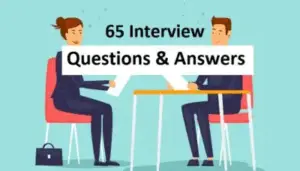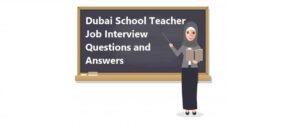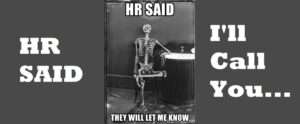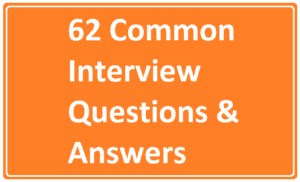Interview Skills and Techniques
Even the sharpest and most qualified job seekers need to plan and improve their Interview Skills and Techniques for their prospective job interviews. And there are no renewed opportunities to establish an extraordinary first meeting. These Interview Skills and Techniques will show you how to address questions in a job interview.
Interview Skills and Techniques – Interview Skills
Part I: Interview Skills
1. Interview skills: how to answer questions
- Hold the key points, be concise and clear, clearly organized, and well-founded. Under normal circumstances, the answer to the question should be the conclusion first, and the discussion after, first express your central meaning clearly and then make the narration and argumentation. Otherwise, long talks will make people useless. The interview time is limited, and if there is too much left, it is easy to go off the topic, but it will dilute or miss the topic. This is especially important when introducing yourself in an interview.
- Tell the whole story and avoid abstraction. Employers always want to know the specific situation of some examinees when asking questions, and must not simply answer with “yes” and “no”. According to the different questions raised, some need to explain the reason, and some need to explain the degree. Without telling the truth, answers that are too abstract often do not leave a concrete impression on the examinee.
- Confirm the question information and avoid answering unsolicited questions. During the interview, if you cannot touch the edge of the question raised by the employer, and you do not know where to answer or have difficulty understanding the meaning of the other party’s question, you can repeat the question and talk about your understanding of the question first. Ask for advice from The other party to confirm the information. It is necessary to clarify questions that are not very clear so that they can be targeted and will not answer the wrong questions.
- Have personal opinions and personal characteristics. Employers sometimes receive several candidates, ask the same questions several times, and listen to similar answers several times. Therefore, the employer will feel boring and boring. Only answers with unique personal opinions and personal characteristics can arouse the interest and attention of the other party.
- Knowing is knowing, not knowing is not knowing. When you encounter questions that you don’t know, don’t understand, or don’t know, you avoid flickering, silent, far-fetched, and you don’t know how to pretend to understand. It’s not enough to admit your shortcomings sincerely and frankly, and you will win the test. The trust and goodwill of the readers.
Also Read:- Typical Interview Questions and Answers
2. Interview skills: how to eliminate tension
Since the success of the interview is related to the prospects of job applicants, college students are often prone to nervousness during interviews. Some college students may fail the interview due to excessive stress. Therefore, we must try to eliminate excessive tension. There are several techniques for eliminating excessive tension for students’ reference.
- Before the interview, you can read a simple, lively and funny magazine or book. Reading books at this time can divert attention, adjust emotions, and overcome stage fright during the interview. Avoid tension and anxiety while waiting.
- Pay attention to controlling the pace of conversation during the interview. After entering the examination room to give a gift and sit down, if you feel nervous, don’t rush to speak. Instead, concentrate on listening to the question and then calmly answer the question. Generally speaking, when people are nervous, their speech speed will increase unconsciously. If the speech speed is too fast, it will not help the other party to hear the speech materials clearly, and it will give people a feeling of panic. Speaking too fast is also prone to errors, and even gaping, which intensifies one’s nervousness and leads to confusion in thinking. Of course, slow speech, lack of passion, and a dull atmosphere can also make life boring. To avoid this, you can slow down your speech consciously when you start a conversation and increase your tone and speed after you enter the state. In this way, you can stabilize your nervousness and reverse the dull atmosphere of the interview.
- When answering questions, keep your eyes on the forehead of the questioner. Some people don’t know where to look when answering questions. Experience has proved that people who are unwilling and uncertain can make people feel dishonest; people who have droopy eyes give people an impression of lack of confidence; staring directly at the questioner will be misunderstood as challenging him and giving people a sense of awkwardness. Feeling rebellious. If you focus on the opponent’s forehead during the interview, you can give the other person an impression of sincerity and confidence, and you can also muster your courage and eliminate your tension.

3. Interview skills: how to use language
Your art of language expression in the interview field marks your maturity and comprehensive literacy. For job applicants, mastering the skills of language expression is undoubtedly important. So, how to properly use conversation skills in an interview
- Clear speaking, fluent language, elegant and generous. Pay attention to accurate pronunciation and clear words when talking. Also pay attention to controlling the speed of speaking, so as not to stumble and affect the fluency of the language. Don’t use mantras, let alone impolite language.
- The tone is calm, the intonation is appropriate, and the volume is moderate. Pay attention to the correct use of language, intonation and tone during the interview. It is advisable to use the tone of voice, emphasize the tone and bring the tone to attract the attention of the other party. When introducing yourself, it is best to use a gentle statement tone, rather than an exclamation tone or imperative sentence. Too loud is annoying and too small to be difficult to hear. The principle is that every employer can hear your speech.
- Pay attention to the listener’s response. A job interview is different from a speech but closer to a general conversation. During the conversation, you should always pay attention to the listener’s reaction. For example, if the listener is absent-minded, it may mean that he is not interested in this passage of his own, and you have to try to change the subject; listening attentively may indicate that it is difficult for the other party to hear the other party because of his low volume; frowning or shaking his head may indicate that his speech is inappropriate Place. Based on these responses from the other party, you must adjust your language, intonation, tone, volume, and rhetoric, including presentation materials, on time. Only in this way can a good interview result be achieved.
Also Read:- 16 Difficult Interview Questions and Answers
4. Interview skills: how to use gestures
In fact, in daily communication, people are consciously or unconsciously using gestures to help them express their wishes. So, how do you use gestures correctly in an interview?
A gesture of concern: In a conversation with another person, you must show concern about the other person’s conversation and show that you are listening attentively. Only when the other party feels that his conversation is being paid attention to and understood by others, can he listen to your conversation happily and attentively, and have a good impression of you. This is especially true during interviews. The general gestures for expressing concern are: place your hands together in front of your mouth, or put your fingers under your ears; or cross your hands and lean forward.
Interview Skills and Techniques – Techniques
Part II: Techniques
1. Basic etiquette in the interview
- Once the interview time has been agreed upon with the employer, you must arrive at the interview location 5-10 minutes in advance to show the sincerity of the job applicant and give the other party a sense of trust. At the same time, you can adjust your mentality and make some simple appearances. Be prepared so as not to rush into battle and be in a hurry. To do this, it is necessary to keep in mind the time and place of the interview. It is best for qualified students to go there in advance, so as not to be late due to missing places or delays on the way. If you are late, you will leave a bad impression on the recruiter and even lose the opportunity for an interview. If you are looking for a job in Shanghai, you must pay more attention to this point. Because Shanghai’s roads are very winding, it’s easy to be late because you can’t find a place.
- Don’t be nervous when entering the interview. If the door is closed, knock on the door first and get permission before entering. The opening and closing actions should be light, calm and natural. When you meet, you should take the initiative to greet the recruiter and greet you, and the address should be decent. When the employer does not ask you to sit down, do not rush to sit down. When the employer asks you to sit down, you should say “Thank you”. Continue to maintain a good posture after sitting down, avoid being careless, looking around, not caring, so as not to cause disgust. When leaving, you should ask “Is there anything else you want to ask?”, smile and stand up when you get permission, thank you and say “goodbye”.
- Answer the questions of the employer one by one. When the other party introduces you to the situation, listen carefully. To show that you have understood and are interested, you can nod or ask questions and answer questions at the appropriate time. To answer the examinee’s questions, speak, have a moderate voice, and answer concise and complete answers. Under normal circumstances, do not interrupt the employer’s questioning or rush to answer questions, otherwise, it will give people the impression of impatience, recklessness, and impoliteness. After the questioning, you can ask to repeat if you don’t understand. When you cannot answer a question, you should tell the employer truthfully. Vague remarks and nonsense will cause the interview to fail. Be patient with repetitive questions and don’t show impatience.

2. Don’t make these small movements
Hand: This part is most prone to problems. If your hands are always unstable and busy, do some actions such as juggling with ties, picking your nose, stroking your hair, breaking joints, and playing with the business cards handed by the examiner.
Feet: nervously shaking, stretching, and tilting, etc., not only artificially creates tension, but also appears absent-minded and quite impolite.
Back: Huck your waist, arch your back, like a “Liu Luoguo”, how does the examiner have confidence in you
Eyes: panic or dodge, but when you should face it, your gaze wanders, giving people the impression of lack of confidence or hiding unspoken secrets, which can easily disgust the examiner; in addition, if you stare at the examiner, it will inevitably be oppressive. Sense, provoke dissatisfaction.
Face: Either dull and rigid, or indifferent and lifeless, etc. How can such a zombie expression move people quickly and change it? A lively face is very important.
OK: Some of his actions are at a loss, flustered, obviously lacking self-confidence, and some are slow and at a loss. Not only will they devalue themselves, but it is also strange that the examiner does not regard you as “bian”.
In short, during the interview, these bad habits must be changed, and from beginning to end continue to be polite, not humble, generous and decent, lively and lively. Not only can greatly enhance the image of job seekers, but also often greatly increase the chances of success
Also Read:- Guide to Fresh Graduates Maintaining Mental Health During the Job Search
3. Be adaptable in the interview
In the process of face-to-face interviews, employers are generally in a proactive position, especially when there is no fixed pattern for face-to-face interviews. Sometimes unexpected situations may occur at any time. At this time, you need to be good at responding to situations and deal with unexpected situations appropriately:
- For example, in an interview, you may feel nervous and disrupt the presentation materials prepared in advance. At this time, you may be able to say frankly sorry to the examiner, or if you are too nervous, can you pause? Generally, the examiner will give understanding. At this time, you can stabilize your emotions and reorganize your presentation data:
- During the interview, you may also encounter silence and embarrassment between both parties. This may also be deliberately set by the examinee to see if you can calm down. At this time, you have to be good at finding appropriate strategies to deal with it, such as Finding some topics that the examiner is interested in, and continuing the conversation in an appropriate way, or following the topic just now to continue the conversation. You also remain silent, which may also be an effective strategy.
- If you say something wrong, don’t get nervous, keep calm, if it’s a small mistake, you can ignore it and continue your speech, if it’s a big mistake, you should correct it in person.
- If you do not understand the questions raised by the chief examiner, do not pretend to be ostentatious. You can admit it frankly and ask humbly. This will show your honesty and studious quality.
Interviewers, also pay attention to the following details:
- The first impression is very important. Shaking hands with the examiner must be strong to show your confidence and enthusiasm; look at the examiner with both eyes, pay attention to eye contact with the examiners, rather than looking around
- Concentrate during the interview. Do not ignore any questions raised by the examiner
- Talk less. Avoid eloquent, rhetorical statements, and be specific and clear when answering questions
- Arrive at the interview location on time. Arriving on time means that you are committed to keeping promises
- Don’t show in the interview that you are very eager to get the job, but don’t show that you have no interest in the job
- Dress appropriately
- Pay attention to politeness and use more words such as “please”, “thank you”, and “very honoured”
- Don’t make too many small movements. Any inadvertent small actions in the interview, such as constantly touching your hair, playing with ballpoint pens, and constantly licking your lips, will greatly reduce the examiner’s impression of you because these behaviours reflect the tension of the interviewer
- Let the examiner know you better. Briefly and concisely introduce your talents to the examiner and how you plan to be effective in your job
- Before the interview, you must carefully understand the characteristics of the employer and the scope of work
I will re-emphasize the personality again. These are the interview skills and precautions. You must not get your favourite unit to practice first, otherwise, you will regret it!




























